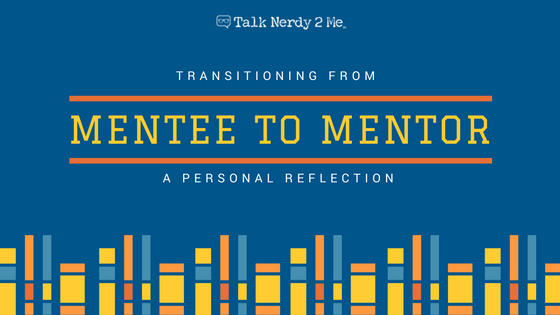The concept of mentorship has always been and always will be something that is hard for me to navigate and understand. A plethora of questions run through my mind when I even think about the word “mentor.” Questions like “How does one get a mentor?” or “Do I really need a mentor?” These are questions I am sure you may ask yourself sometime in your college career. Throughout my undergraduate experience, I have been very fortunate to have several mentors both on and off campus. My experiences with them have opened my eyes to what a mentor-mentee dynamic is like.
In the beginning stages of my first mentorship, I had thought to myself: “Do I really need someone to guide me? I’m pretty independent and I could figure things out for myself.”
I met Dr. Meyer, my academic and personal mentor for three years, while I was an undergraduate researcher in his biochemistry research lab. Needless to say, my relationship with Dr. Meyer has been extremely rewarding now that I reflect on the last three years. What I have gotten out of his mentorship is his experience, wisdom, and knowledge. He is someone who would support me in all my ventures when no one really wanted to. In my last couple of years of undergraduate research, everyone had thought that it was strange that I wanted to present my research as much as possible and questioned my motives, but Dr. Meyer was always supportive of my decisions. That’s the moment when I realized the importance of a mentor who understands you. There will always be people who make you question yourself and in those moments, you need someone who has your best interests at heart and will support you.
After this realization, I start to seek out mentors who will support my goals professionally and personally. Although I knew that I wanted to have mentors, I still struggled with how I should find and build those valuable relationships.
“How does mentorship work? How can I approach someone and ask them to be my mentor? “
Becoming a mentee of Dr. Meyer’s was relatively easy. Undergraduate research is required for the chemistry and biochemistry degree at CSU Fullerton; therefore, each student would’ve needed to find a mentor within the department faculty. I chose the Meyer group, boom, Dr. Meyer became my mentor. Pretty easy! Fast forward to the summer of 2016—I was very fortunate to have been able to get an internship at the U.S. Department of Agriculture in Washington, D.C., where I was Administrator Val Dolcini’s intern. I consider Val to be my mentor and I’m sure that Val considers me his mentee, but it was never officiated or really even said.
Val’s advice to me on this was pretty simple—a mentoring relationship is usually developed in a work setting where you can learn from someone at a higher level than you. There isn’t a really formal process in developing this relationship; it’s almost an unspoken understanding. His advice was to seek out people who you’d want to learn from and get to know, and the relationship between the two of you will naturally develop into a mentorship sort of relationship after mutual trust has been established. Another key thing to know and understand is that people who have established themselves professionally mostly enjoy being mentors. They enjoy being able to pass down wisdom and knowledge so that someone they care about will benefit and achieve success in the future.
Val has had a very good political career between California and Washington D.C., and I seized the opportunity to pick his brain about mentors and how to find them. I asked, “How can I maintain a mentoring relationship when someone is on the other side of the country?”
Val advised me to just keep writing letters or emails, updating them on my progress or any big decisions. Essentially, try to stay on your mentors’ minds because the saying “out of sight, out of mind” is definitely a true one.
I think that mentorship is an amazing thing. It has helped me build relationships, meet even more people, and be more open-minded by showing me a different perspective. I personally believe that everyone should have a mentor, because there is no better way to learn about your interests than directly from someone who has gone down a similar path to the one you are pursuing.
 Ashlee Le-Pham is the Alumni Liaison for the NSCS National Leadership Council and is an Alumna of California State University, Fullerton. The NLC can be found on Twitter at @NSCS_NLC and on Facebook atwww.facebook.com/the.nscs.nlc.
Ashlee Le-Pham is the Alumni Liaison for the NSCS National Leadership Council and is an Alumna of California State University, Fullerton. The NLC can be found on Twitter at @NSCS_NLC and on Facebook atwww.facebook.com/the.nscs.nlc.

